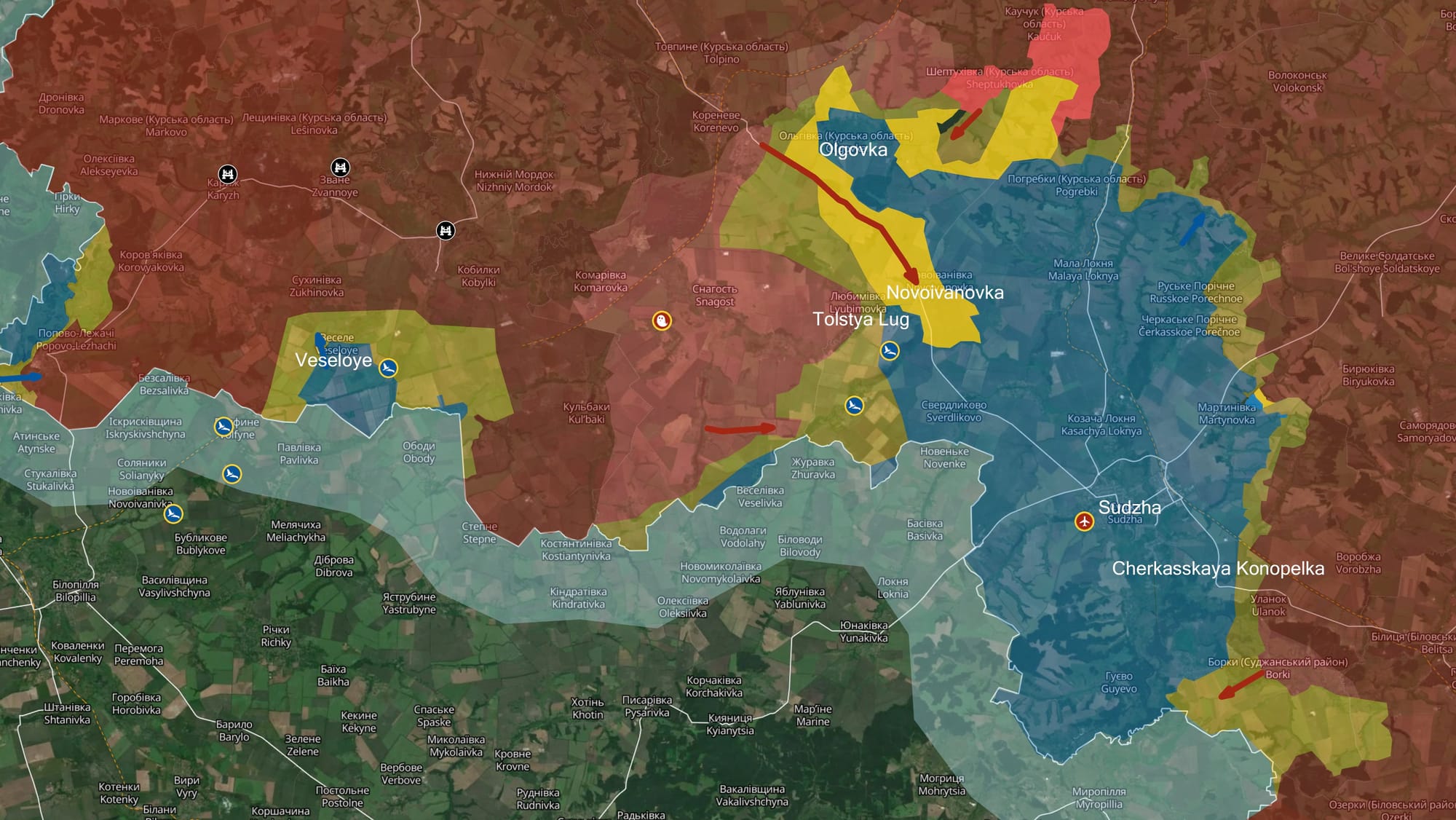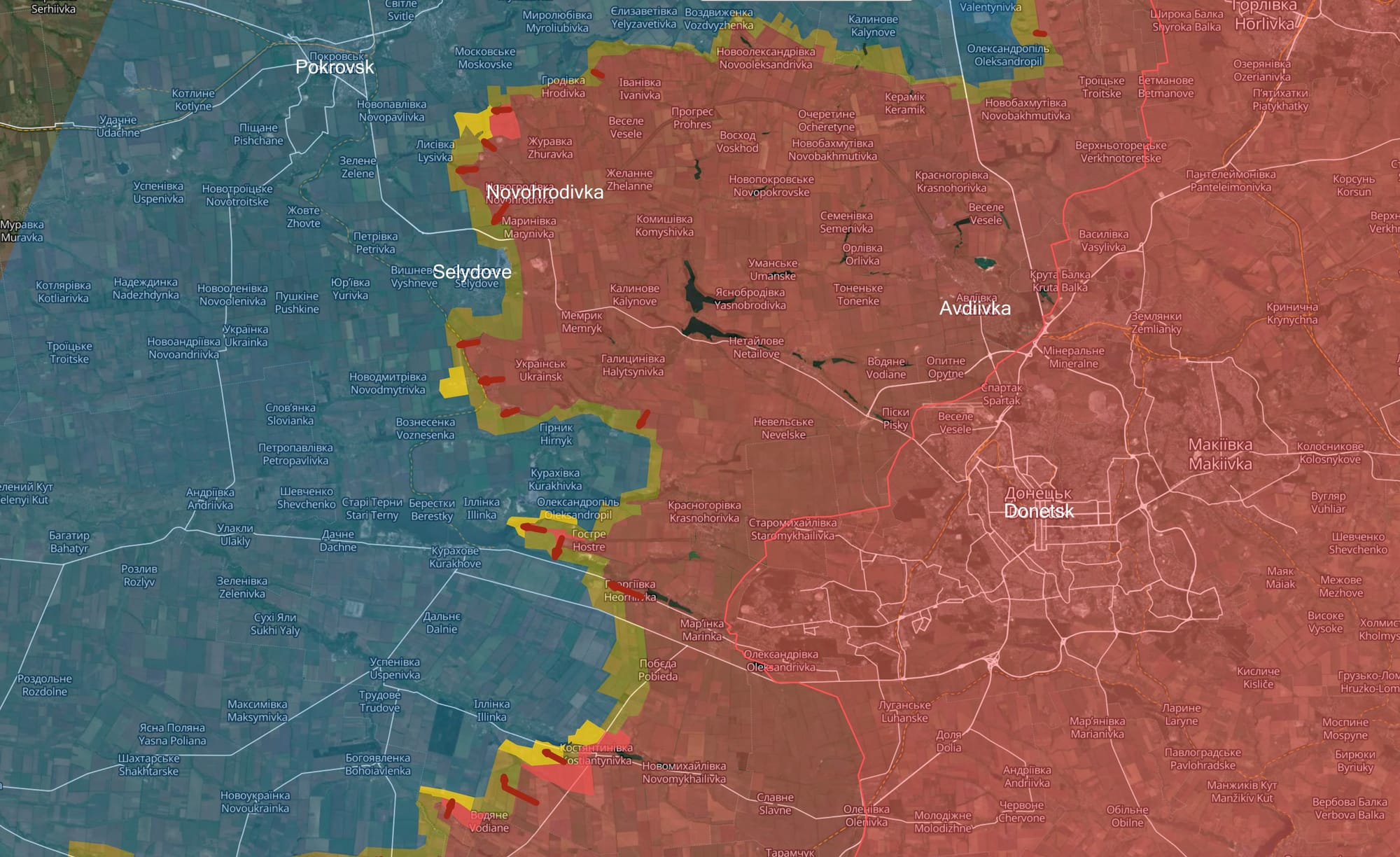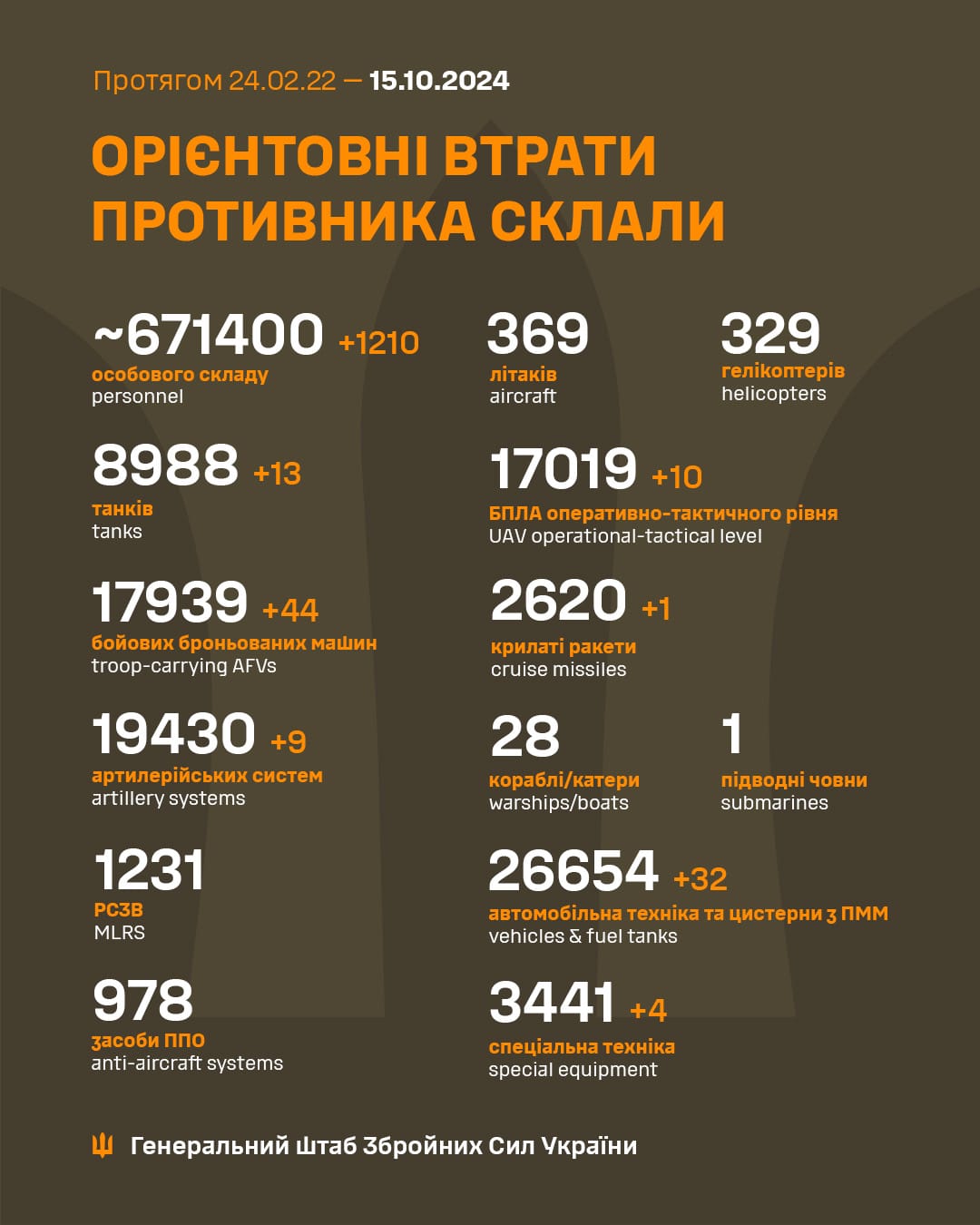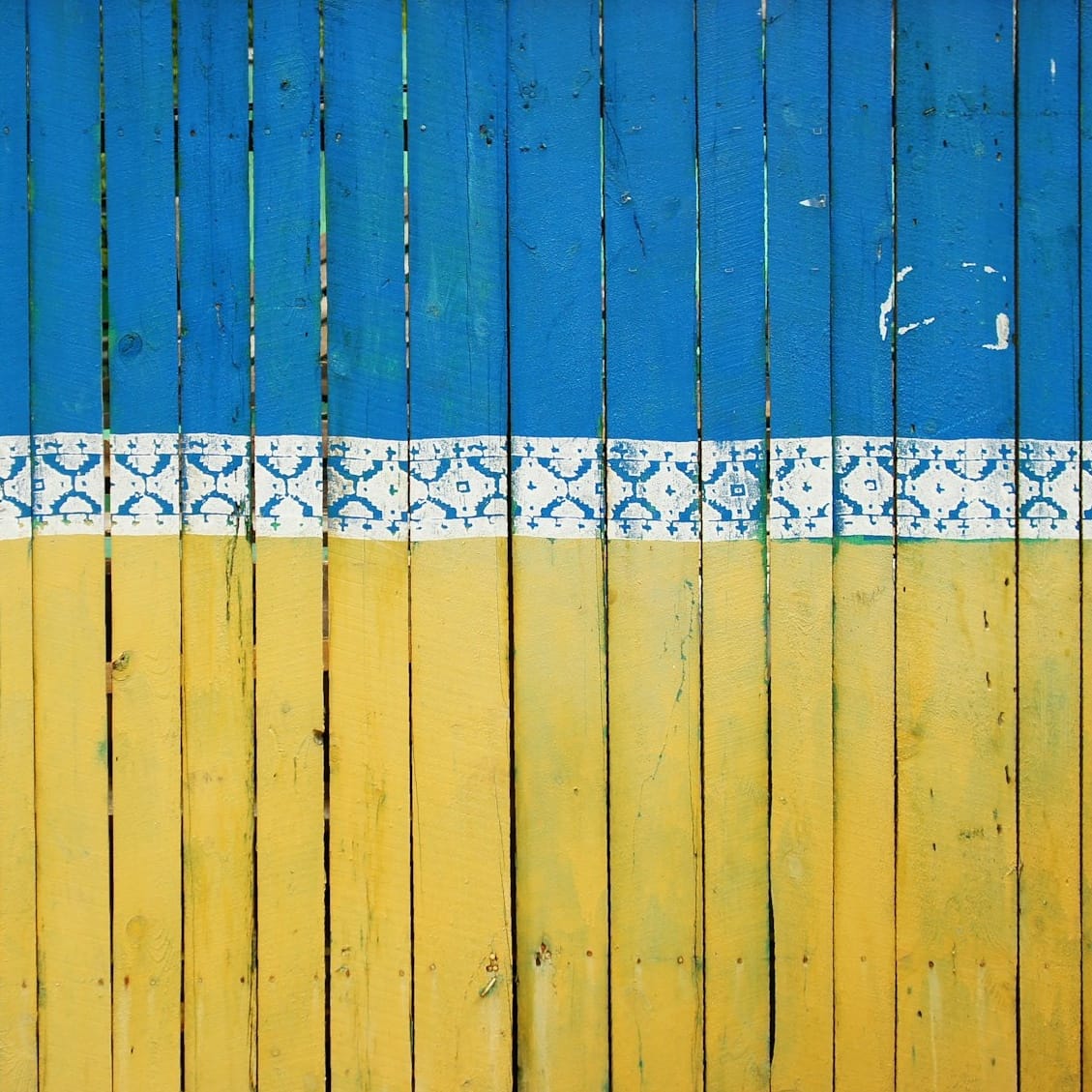Russian Defense Minister Andrei Belousov was in China this week, meeting with Chinese leaders to confirm the continued military partnership between Moscow and Beijing. While Belosov was in Beijing, Russian ships joined the Chinese fleet for bilateral naval exercises in the Pacific. On a very different front, Russian and Chinese hackers are now cooperating in cyber-terrorism aimed at "espionage, destruction, or influence" in Western countries.
Joining Russia and China in these cyber attacks are hackers from Iran. Despite facing new sanctions from the European Union, Iran continues to provide Russia with thousands of drones and with ballistic missiles to be used in attacks on Ukrainian cities. Even in the midst of launching hundreds of missiles into Israel, Iranian leaders see their support for Vladimir Putin's invasion as so important that they are willing to crate up and deliver some of their most potent weapons.
North Korea is also supplying Russia with artillery and other weapons. According to Ukrainian President Volodymyr Zelenskyy, Kim Jong-un is providing soldiers to fight on the front lines of the unprovoked, illegal invasion. How many North Korean troops are currently fighting in Ukraine, or where they are located, isn't yet clear. But this level of direct, boots-on-the-ground assistance may be a big part of why Putin is currently pushing hard for a "Treaty on Comprehensive Strategic Partnership" that would join Russia and North Korea in a mutual defense agreement.
None of these nations is trying to tell Russia where they can use their weapons or how to deploy their resources. From day one, weapons provided by China, Iran, and North Korea have been used by Russia in long-range attacks on civilian population centers and vital infrastructure. None of these regimes is setting limits on Putin. None of them is fretting about possible repercussions.
They're not pretending to support Russia in this conflict. They're supporting Russia.
“We see an increasing alliance between Russia and regimes like North Korea," Zelenskyy said in a televised address on Sunday. "It is no longer just about transferring weapons. It is actually about transferring people from North Korea to the occupying military forces.”
The Authoritarian Axis is growing stronger and more committed. And it's not hard to see why the authoritarian regimes are all in.
They see Putin's invasion of Ukraine as a chance to defeat and humiliate the West, demonstrate the inferiority of liberal democracies, and open the door for the expansion of their own regimes through aggressive military action. For them, Ukraine is an experiment. If Putin can do this and get away with it, well then ... anything goes.
They also see the war in Ukraine as the end of Pax Americana; as the point when the United States steps away from its role as the greatest among equals. If the end of the Cold War was supposed to be a repudiation of international communism, this open military conquest of Ukraine by a brutal dictatorial regime marks the end of stability, the end of democracy, and the end of the progress that's defined the last century.
They are making the world safe for large-scale war again.
Meanwhile, Donald Trump is making it clear that he sides with the Axis. On Fox News last Sunday, Trump argued that not confronting Kim, Putin, and other authoritarian leaders is the only possible option, because the risk of stopping them is too high.
“We would’ve had a nuclear war with millions of people killed,” Trump said. “And when I was in there, I got along great with Kim Jong-un.”
In other words, Trump has already made it clear that he fears them too much to stand in their way. Or he is simply using that fear as an excuse. It really doesn't matter.
Against this backdrop, the U.S. has now spent over a month dithering on whether to allow Ukraine to use a single weapons system in the way that Ukrainian military leaders have made clear is a necessity for the nation's defense. Russia's grinding advance in Donetsk continues. And the time for the Allies to pull this fight out of the ashes is growing very damn short.
Kursk
After weeks in which the situation in Ukraine's incursion into the Kursk region of Russia seemed all but stable, this week Russia made its first real moves to recapture significant portions of this area.

According to Russian military sources, they have driven down the highway on the northwest side of the Ukrainian-controlled region and recaptured the towns of Novoivanoka and Tolstya Lug. On Monday, Russia also claimed to have recaptured the village of Cherkasskaya Konopelka to the southeast, but there had been no confirmation of action in this area.
Russia has also taken control of the area that had been at the very northern tip of the incursion, but Ukraine doesn't seem to have had any significant force in the area. The larger concern is that Ukrainian troops at Olgovka now appear to be nearly surrounded by Russian forces, and if Russia controls the highway south to Novoivanoka, Ukraine's options to support—or withdraw— these forces may be limited.
In the two smaller incursion areas to the west, there are still reports that Ukraine has been advancing, with hopes of controlling more area south of the river. However, it doesn't seem that any other villages or towns have come under Ukrainian control over the last week.
Pokrovsk
In Donetsk Oblast, evacuations continue as Russia draws ever closer to the critical city of Pokrovsk.

It's now been a solid year since Russia concentrated its forces in the area near Donetsk and began a dedicated effort to break through Ukrainian defensive lines at Avdiivka. That location held out until 17 February 2024, and Russia lost hundreds of armor units and thousands of men in the effort to take this position.
Since the fall of Avdiivka, Russia hasn't exactly galloped across the landscape (their rate of advance toward Pokrovsk has been limited to about a soccer field per day). However, over the last eight months, the defensive lines that had kept Russian forces within a few kilometers of Donetsk throughout the invasion have essentially ceased to exist. Russia is advancing slowly, but they're advancing everywhere.
Ukraine has continued to hold the highway positions at Selydove, but the position there could become untenable in a matter of days. There are few good defensive locations between Pokrovsk and this position.
#NewsMap
— Julian Röpcke🇺🇦 (@JulianRoepcke) October 15, 2024
Bitter reality in #Selydove (formerly 23.000 inhabitants).
Kara Dag is doing great, defending the town, but neighbouring units are not. So the town will fall, no matter its strong defenders. Exactly what I experienced when I visited Kara Dag in the area, 4 weeks ago ... pic.twitter.com/FG0bdnBYqi
Russia isn't walking freely into these areas. Drones and artillery are continuing to extract a high price for Russian advances. But the story of what's happening now near Pokrovsk is essentially the story of this war: Ukraine is extracting a lopsided cost from Russia at every advance, but that cost is not so lopsided that they can stop the Russian advance.
War in Ukraine 🇺🇦🇷🇺 Pokrovsk is holding on! Ukrainian fighter hits advancing Russian BTR with troops on its board with US-supplied Javelin ATGM #Ukraina #Russia #UkraineWar pic.twitter.com/euLmeddela
— Skënderbeü_ (@AncientAlien01) October 15, 2024
"Quantity has a quality of its own," says the U.S. War College (not Stalin, Clausewitz, or Napolean, dammit), and that quality is still extremely evident on the Donetsk front. Something has to change in this region if Russia is going to be stopped. Russian forces are now less than 6 kilometers from Pokrovsk, and there is no getting around it: Pokrovsk counts.
Threats like this one by Vladimir Solovyev come with regularity. They're not serious threats. They're just meant to give guys like Trump a regular excuse for letting Putin have whatever he wants.
Russian propagandist Solovyev:
— Anton Gerashchenko (@Gerashchenko_en) October 14, 2024
"We should have been used nuclear missiles long time ago. Why can't we hit NATO training bases? ... Nobody's going to stand up for old Europe."
Zero days without nuclear threats from Russia. pic.twitter.com/oraEP8oRAU
Remember the Canadian idiots who emigrated to Russia to escape "wokeness"? That hasn't worked out well for them and, unfortunately, hasn't become a big trend among U.S. fans of fascism.
But it turns out they were running the wrong way. While people are struggling to get into America, they are flowing out of Russia. Oh, and they're also enjoying a life expectancy almost a decade lower than that in the United States.
Getting half a million people killed on the battlefield probably isn't helping these numbers.
Every single day the Russian population falls by 1500 people. And that isn’t counting their war casualties. That is just their death rate + emigration + birthrate + immigration. Net -1500 per day. That is 550,000 people per year.
— Andrew Perpetua (@AndrewPerpetua) October 14, 2024












Comments
We want Uncharted Blue to be a welcoming and progressive space.
Before commenting, make sure you've read our Community Guidelines.